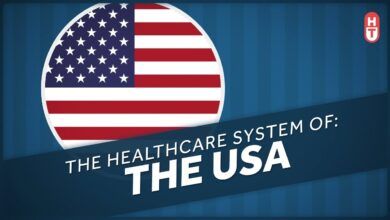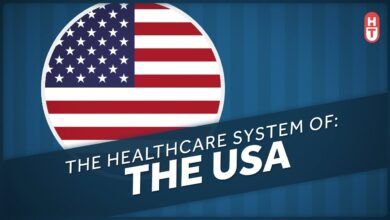U.S. Health Insurance Coverage : A Looming Crisis in Affordability

Health insurance is a critical component of ensuring access to quality healthcare for individuals and families. It provides financial protection against unexpected medical expenses and promotes preventive care. However, in the United States, the affordability of health insurance has become a pressing concern, with many individuals and families struggling to afford coverage.
Current State of Health Insurance in the U.S.
The landscape of health insurance in the U.S. is complex, with various public and private options available. Despite efforts to increase coverage through initiatives like the Affordable Care Act (ACA), millions of Americans remain uninsured. According to recent statistics, over 30 million people in the U.S. lack health insurance, with many citing high premiums and deductibles as barriers to enrollment.
Factors Contributing to the Affordability Crisis
Several factors contribute to the rising costs of health insurance in the U.S. Healthcare costs continue to outpace inflation, driven by factors such as pharmaceutical prices and the cost of medical technology. Additionally, administrative expenses associated with insurance companies and healthcare providers contribute to the overall cost burden.
Impact on Individuals and Families
The affordability crisis in health insurance has profound implications for individuals and families across the country. Many households are forced to allocate a significant portion of their income to health insurance premiums, leaving little room for other essential expenses. As a result, some individuals may delay or forgo necessary medical care, leading to adverse health outcomes.
Challenges Faced by Vulnerable Populations
Vulnerable populations, including low-income families, young adults, and minority communities, face unique challenges in accessing affordable health insurance. Limited financial resources and lack of employer-sponsored coverage make it difficult for these groups to afford comprehensive health insurance plans.
Government Initiatives and Policies
The U.S. government has implemented various initiatives and policies aimed at expanding access to affordable health insurance. The Affordable Care Act (ACA) introduced reforms such as health insurance marketplaces and Medicaid expansion to increase coverage options for uninsured individuals. However, ongoing political debates and legal challenges have hindered the full implementation of these measures.
Private Sector Responses
In addition to government efforts, the private sector plays a crucial role in addressing the affordability of health insurance. Many employers offer health insurance benefits to their employees as part of their compensation package. Health savings accounts (HSAs) and telemedicine services are also becoming increasingly popular as cost-saving measures for consumers.
Potential Solutions
Addressing the affordability crisis in health insurance requires a multifaceted approach. Some advocate for the adoption of a universal healthcare system, similar to those found in other developed countries, to ensure coverage for all Americans. Others propose a public option or increased regulation of healthcare prices to lower costs for consumers.
Barriers to Implementation
Despite widespread recognition of the need for healthcare reform, significant barriers stand in the way of implementing comprehensive solutions. Political divisions, entrenched interests, and concerns about the economic impact of reforms make it challenging to enact meaningful change.
Case Studies and Success Stories
Looking to other countries and states can provide valuable insights into effective healthcare models. Countries with universal healthcare systems, such as Canada and the United Kingdom, demonstrate the feasibility of providing comprehensive coverage to all citizens. Similarly, states like Massachusetts have successfully implemented policies to increase access to affordable health insurance.
The Role of Public Awareness and Advocacy
Public awareness and advocacy are essential components of addressing the affordability crisis in health insurance. Educating the public about the importance of coverage and mobilizing grassroots movements can help pressure policymakers to take action. By amplifying the voices of those affected by high healthcare costs, advocates can influence policy decisions and drive meaningful reform.
Future Outlook
The future of health insurance in the U.S. remains uncertain, with many challenges and opportunities on the horizon. As healthcare costs continue to rise and political debates persist, finding sustainable solutions to the affordability crisis will be crucial for ensuring access to quality care for all Americans.
Conclusion
In conclusion, the affordability of health insurance in the U.S. is a pressing issue that requires urgent attention. Rising premiums and deductibles, coupled with stagnant wages, have created a situation where many individuals and families struggle to afford coverage. Addressing this crisis will require concerted efforts from policymakers, the private sector, and the public to enact meaningful reforms and ensure access to affordable healthcare for all.
FAQs
- Why is health insurance important? Health insurance provides financial protection against unexpected medical expenses and promotes access to essential healthcare services.
- How does the Affordable Care Act address affordability? The Affordable Care Act introduced reforms such as subsidies for low-income individuals and Medicaid expansion to increase access to affordable health insurance.
- What are the benefits of employer-sponsored insurance? Employer-sponsored insurance offers comprehensive coverage at a lower cost than individual plans and may include additional benefits such as wellness programs.
- Is universal healthcare feasible in the U.S.? While universal healthcare has its challenges, many believe that it is feasible with the right combination of policies and funding mechanisms.
- What can individuals do to advocate for affordable health insurance? Individuals can advocate for affordable health insurance by staying informed about healthcare issues, contacting their elected representatives, and participating in advocacy campaigns and grassroots movements.




